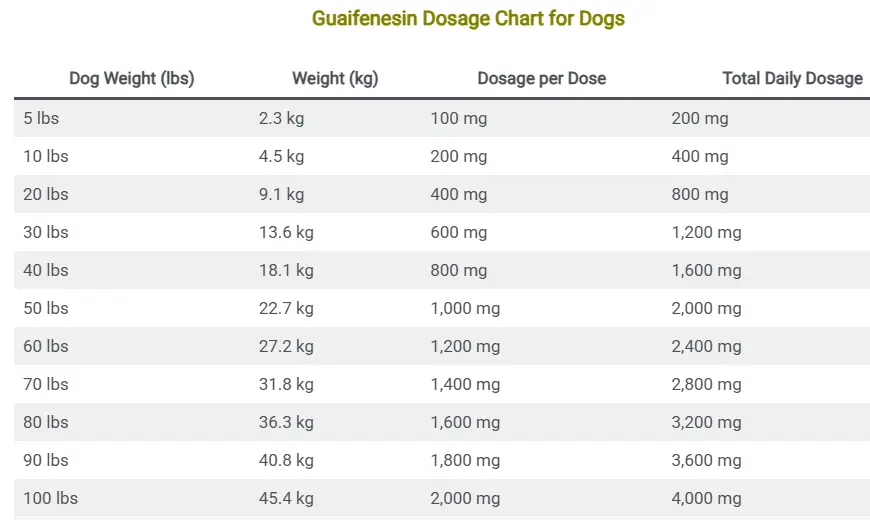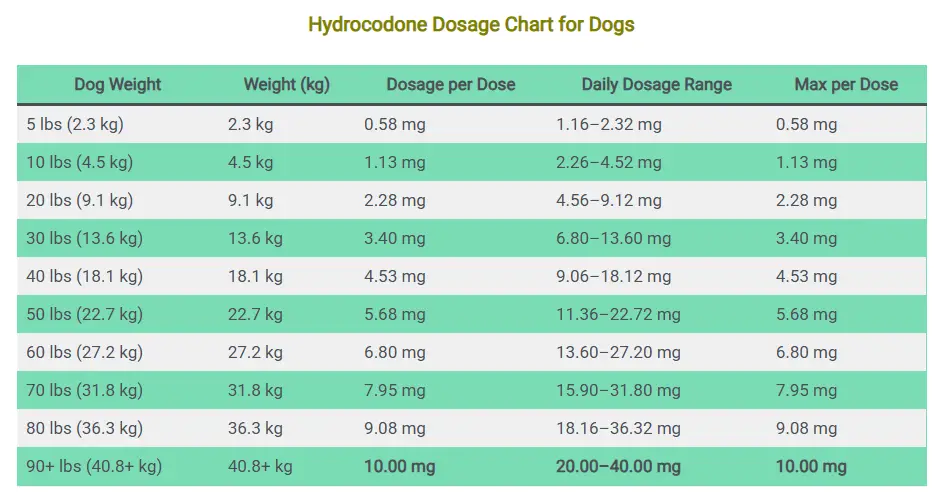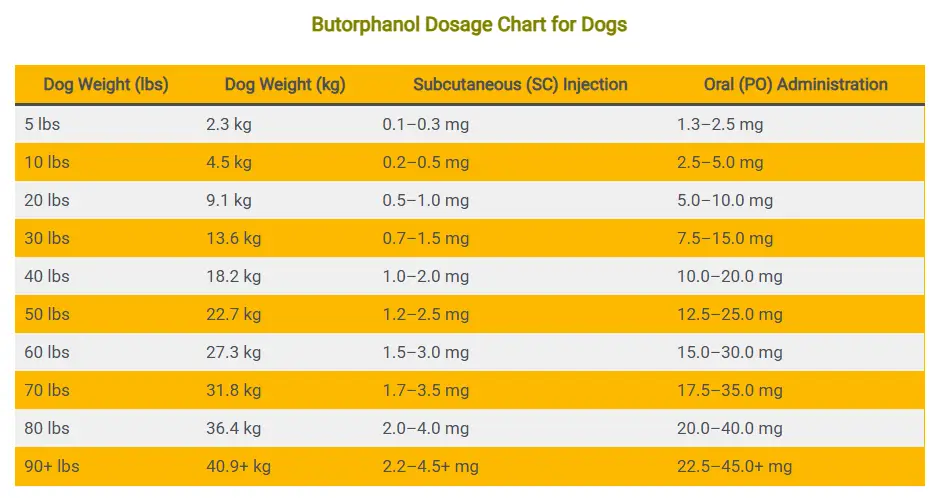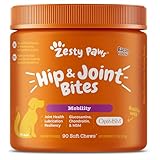Canine cough suppressants provide critical relief for dogs suffering from persistent coughing caused by kennel cough, allergies, or respiratory infections. However, choosing the right cough syrup for dogs requires balancing efficacy with safety – especially since human medications can be toxic.
In this educational guide, we reveal 5 safe canine cough suppressants with precise dosage charts to help you protect your dog.
Whether you’re managing acute symptoms or chronic conditions, these cough suppressant for dogs (including natural and prescription remedies) offer worry-free solutions backed by dosage guidelines tailored to your dog’s weight and health status.
Act quickly – your dog’s comfort depends on informed, safe treatment choices.”
Disclaimer: All the information in this guide is for educational purpose only. Before administering any medication to your dog, always consult with your veterinarian. They can recommend safer alternatives specifically formulated for canine use and appropriate for your pet’s specific health profile.
5 Safe Canine Cough Suppressants
- Dextromethorphan (Cough Suppressant Ingredient)
- Guaifenesin (Expectorant for Mucus Relief)
- Benadryl (Diphenhydramine for Allergic Coughs)
- Hydrocodone (Prescription Cough Suppressant)
- Butorphanol (Veterinary-Approved Medication)
1. Dextromethorphan (Cough Suppressant Ingredient)
Dextromethorphan is one of the few canine cough suppressant medicine ingredients that can be used safely for dogs when administered properly. It works by acting on the brain’s cough center, reducing the frequency of coughing without sedating your dog too much. This makes it especially useful for dry, hacking coughs that are constant but not productive.
However, you must be very careful when selecting a cough suppressant for dogs. Many human cough syrups contain additional ingredients like acetaminophen, pseudoephedrine, or xylitol, all of which are highly toxic to dogs. Only use plain dextromethorphan (often labeled as “DM” on the packaging) and always check with your vet before giving it.
The recommended safe dosage of Dextromethorphan canine cough suppressant is 0.5–1 mg/kg orally every 8-12 hours. However, exceeding the safe dosage limit can be toxic and should be avoided. Always consult your veterinarian before administering this medication.
Common Adverse Reactions of Dextromethorphan in Dogs
When administered to dogs, dextromethorphan may cause several concerning side effects, including:
- Digestive disturbances such as nausea and diarrhea
- Neurological symptoms like muscle twitching and uncontrolled movements
- In severe cases, potentially life-threatening seizures
These reactions highlight why veterinarians strongly advise against using this medication without professional supervision.
Dogs at Higher Risk for Complications
Particularly concerning is that dextromethorphan is specifically contraindicated for dogs with certain pre-existing conditions. Veterinarians caution against administering this cough suppressant to dogs diagnosed with:
- Liver disease or impaired liver function
- Chronic skin allergies or dermatological conditions
- Persistent coughing disorders requiring specialized treatment
Dangerous Drug Interactions to Avoid
One critical safety concern involves dextromethorphan’s canine cough suppressant interaction with MAOI (Monoamine Oxidase Inhibitor) medications. These drugs, often prescribed for canine cognitive dysfunction, can create hazardous reactions when combined with dextromethorphan.
If your dog is currently taking an MAOI such as selegiline (Anipryl), which is commonly used to treat canine cognitive dysfunction and Cushing’s disease, dextromethorphan should be strictly avoided. The combination can lead to serotonin syndrome, a potentially fatal condition characterized by elevated heart rate, high blood pressure, and hyperthermia.
Dextromethorphan Dosage Chart For Dogs
| Weight (kg) | Weight (lbs) | Dosage Range (mg) per Dose |
|---|---|---|
| 2 kg | 4.4 lbs | 1.0 – 2.0 mg |
| 5 kg | 11.0 lbs | 2.5 – 5.0 mg |
| 10 kg | 22.0 lbs | 5.0 – 10.0 mg |
| 15 kg | 33.1 lbs | 7.5 – 15.0 mg |
| 20 kg | 44.1 lbs | 10.0 – 20.0 mg |
| 25 kg | 55.1 lbs | 12.5 – 25.0 mg |
| 30 kg | 66.1 lbs | 15.0 – 30.0 mg |
| 35 kg | 77.2 lbs | 17.5 – 35.0 mg |
| 40 kg | 88.2 lbs | 20.0 – 40.0 mg |
| 45 kg | 99.2 lbs | 22.5 – 45.0 mg |
| 50 kg | 110.2 lbs | 25.0 – 50.0 mg |
2. Guaifenesin (Expectorant for Mucus Relief)
Unlike dextromethorphan cough suppressant for dogs, which stops the cough reflex, guaifenesin works as an expectorant and canine cough suppressant. This means it helps thin and loosen mucus in the airways, making it easier for your dog to cough up phlegm. It’s most helpful for dogs with wet, congested coughs rather than dry, harsh ones.
Many human cold medicines combine guaifenesin with other drugs that are dangerous for dogs, so always look for plain guaifenesin without additives. It is typically available in liquid or tablet form.
Excessive guaifenesin consumption in dogs may trigger serious complications, including respiratory abnormalities, hypothermia, and tremors.
This expectorant is also frequently combined with dextromethorphan in veterinary treatments. Additional potential side effects encompass vomiting, elevated heart rate, blood pressure fluctuations, visual disturbances, muscle stiffness, hypothermia, and ataxia (indicating nervous system deterioration).
Guaifenesin Dosage For Dogs
The standard guaifenesin dosage for dogs is 20 mg per pound (equivalent to 44 mg/kg) of body weight, administered twice daily under veterinary supervision. This canine medication dosage should be precisely calculated based on your dog’s weight to ensure safety and efficacy, as improper dosing may lead to adverse effects.
Always consult your veterinarian before adjusting guaifenesin administration for your pet.
Guaifenesin Dosage Chart for Dogs
| Dog Weight (lbs) | Weight (kg) | Dosage per Dose | Total Daily Dosage |
|---|---|---|---|
| 5 lbs | 2.3 kg | 100 mg | 200 mg |
| 10 lbs | 4.5 kg | 200 mg | 400 mg |
| 20 lbs | 9.1 kg | 400 mg | 800 mg |
| 30 lbs | 13.6 kg | 600 mg | 1,200 mg |
| 40 lbs | 18.1 kg | 800 mg | 1,600 mg |
| 50 lbs | 22.7 kg | 1,000 mg | 2,000 mg |
| 60 lbs | 27.2 kg | 1,200 mg | 2,400 mg |
| 70 lbs | 31.8 kg | 1,400 mg | 2,800 mg |
| 80 lbs | 36.3 kg | 1,600 mg | 3,200 mg |
| 90 lbs | 40.8 kg | 1,800 mg | 3,600 mg |
| 100 lbs | 45.4 kg | 2,000 mg | 4,000 mg |
3. Benadryl (Diphenhydramine for Allergic Coughs)
If your dog’s cough is triggered by allergies or environmental irritants, Benadryl (diphenhydramine) is one of the safest and most widely used medications.
It works by reducing histamine activity in the body, which helps control coughing related to allergic reactions, postnasal drip, or airway inflammation.
Benadryl Dosage Guidelines For Dogs:
The ideal dosage of Benadryl for dogs is 2–4 milligrams per kilogram or 0.9–1.8 milligrams (mg) per pound of body weight. For liquid Benadryl (12.5 mg/5ml), the ideal dosage is 0.9 ml/kg or 0.4 ml/lb.
Most dogs tolerate Benadryl well, but side effects can include drowsiness, dry mouth, or urinary retention. For this reason, it’s often best given at night when your dog is resting.
However, avoid Benadryl formulations with decongestants (like Benadryl-D), as these contain pseudoephedrine, which is toxic to dogs. Always check the label carefully before giving it.
Benadryl Dosage Chart for Dogs by Weight
| Dog Weight (lbs) | Dog Weight (kg) | Benadryl Dosage (mg) |
|---|---|---|
| 5 | 2.3 | 2.1 – 4.1 |
| 10 | 4.5 | 4.1 – 8.2 |
| 15 | 6.8 | 6.3 – 12.6 |
| 20 | 9.1 | 8.2 – 16.4 |
| 25 | 11.3 | 10.4 – 20.7 |
| 30 | 13.6 | 12.4 – 24.7 |
| 35 | 15.9 | 14.6 – 29.2 |
| 40 | 18.2 | 16.4 – 32.8 |
| 45 | 20.5 | 18.8 – 37.5 |
| 50 | 22.7 | 20.7 – 41.4 |
| 55 | 25.0 | 22.9 – 45.8 |
| 60 | 27.3 | 24.7 – 49.5 |
| 65 | 29.5 | 27.1 – 54.1 |
| 70 | 31.8 | 29.2 – 58.4 |
| 75 | 34.1 | 31.3 – 62.7 |
| 80 | 36.4 | 33.3 – 66.6 |
| 85 | 38.6 | 35.4 – 70.8 |
| 90 | 40.9 | 37.5 – 75.0 |
4. Hydrocodone (Prescription Cough Suppressant)
For more severe cases of chronic coughing—especially those caused by collapsing trachea, bronchitis, or advanced kennel cough—veterinarians may prescribe hydrocodone dog cough suppressant. This is a powerful opioid-based medication that works directly on the brain’s cough center to stop persistent coughing fits.
Because of its strength, hydrocodone dog cough suppressant is not available over the counter and should only be used under strict veterinary guidance. It’s particularly helpful when coughing is interfering with your dog’s ability to sleep, eat, or breathe comfortably.
Side effects may include drowsiness, constipation, or, in rare cases, slowed breathing. Since hydrocodone is an opioid, it must be carefully stored to avoid accidental ingestion or misuse.
This option is generally considered a last resort when other suppressants and natural remedies fail.
Hydrocodone Dosage For Dogs
The standard hydrocodone cough syrup for dogs dosage is 0.25 mg/kg administered orally (PO) every 6–12 hours under strict veterinary supervision. This canine cough suppressant and pain reliever requires precise weight-based dosing – for example, a 20-kg dog would receive 5 mg per dose (0.25 mg/kg × 20 kg). Never exceed 10 mg per dose regardless of weight.
Hydrocodone is contraindicated for pets with specific health conditions, including severe respiratory disease, hypothyroidism, kidney or liver dysfunction, Addison’s disease, head trauma, seizures, or certain gastrointestinal disorders. Avoid use in severely debilitated, pregnant, or nursing pets.
Concurrent administration with other medications may pose serious health risks, so always discuss your pet’s full medical history and current treatments with your veterinarian before prescribing.
Hydrocodone Dosage Chart for Dogs
| Dog Weight | Weight (kg) | Dosage per Dose | Daily Dosage Range | Max per Dose |
|---|---|---|---|---|
| 5 lbs (2.3 kg) | 2.3 kg | 0.58 mg | 1.16–2.32 mg | 0.58 mg |
| 10 lbs (4.5 kg) | 4.5 kg | 1.13 mg | 2.26–4.52 mg | 1.13 mg |
| 20 lbs (9.1 kg) | 9.1 kg | 2.28 mg | 4.56–9.12 mg | 2.28 mg |
| 30 lbs (13.6 kg) | 13.6 kg | 3.40 mg | 6.80–13.60 mg | 3.40 mg |
| 40 lbs (18.1 kg) | 18.1 kg | 4.53 mg | 9.06–18.12 mg | 4.53 mg |
| 50 lbs (22.7 kg) | 22.7 kg | 5.68 mg | 11.36–22.72 mg | 5.68 mg |
| 60 lbs (27.2 kg) | 27.2 kg | 6.80 mg | 13.60–27.20 mg | 6.80 mg |
| 70 lbs (31.8 kg) | 31.8 kg | 7.95 mg | 15.90–31.80 mg | 7.95 mg |
| 80 lbs (36.3 kg) | 36.3 kg | 9.08 mg | 18.16–36.32 mg | 9.08 mg |
| 90+ lbs (40.8+ kg) | 40.8+ kg | 10.00 mg | 20.00–40.00 mg | 10.00 mg |
5. Butorphanol (Veterinary-Approved Medication)
Butorphanol is another prescription opioid medication specifically designed for veterinary use. It’s often used in cases of severe kennel cough, tracheal collapse, or chronic bronchitis when other treatments aren’t enough.
Unlike hydrocodone, butorphanol also has mild pain-relieving properties, making it a good choice for dogs experiencing both coughing and discomfort. It’s available in tablet form and sometimes as an injectable in veterinary settings.
Essential Contraindications: When Butorphanol Should Be Avoided
Veterinary professionals strongly advise against administering butorphanol to animals with a known hypersensitivity or allergy to this specific medication.
Furthermore, animals exhibiting nervous system dysfunction, those with a documented history of liver disease, or animals recovering from head trauma should not receive this drug due to significant safety concerns.
Cautious Administration Required for High-Risk Animals
While butorphanol can be a valuable tool in veterinary pain management when prescribed appropriately, it demands careful administration in specific populations. Veterinarians exercise heightened caution when prescribing butorphanol to elderly animals or those diagnosed with kidney disease, hypothyroidism, or other serious underlying health conditions. Close monitoring is essential in these cases.
Understanding Potential Side Effects of Butorphanol
As with any prescribed medication, individual animals may exhibit varying sensitivities to butorphanol. The most frequently observed side effects include:
- Reduced Appetite: Animals may show a temporary lack of interest in food.
- Sedation: Drowsiness and lethargy are common reactions.
- Paradoxical Excitement: In some cases, instead of sedation, animals may display unexpected restlessness or agitation.
Recognizing Allergic Reactions: Immediate Action Required
Pet owners must be vigilant for signs of a potential allergic reaction to butorphanol. Symptoms indicating a serious hypersensitivity response include:
- Facial swelling (especially around the muzzle or eyes)
- Development of a skin rash or hives
- Persistent vomiting
- Difficulty breathing or respiratory distress
If your animal displays any of these symptoms after receiving butorphanol, contact your veterinarian or emergency veterinary clinic immediately. Prompt medical intervention is critical in these situations.
Butorphanol Dosage For Dogs
For effective dog cough treatment, the veterinarian-prescribed dosage of Butorphanol typically ranges from 0.055 to 0.11 milligrams per kilogram (mg/kg) administered via subcutaneous injection (SC) every 6 to 12 hours. Alternatively, for oral administration (PO), the recommended canine cough dosage is higher, at 0.55 to 1.1 mg/kg, also given every 6 to 12 hours.
Determining the precise Butorphanol dosage a dog cough suppracent for your dog’s specific condition and size is crucial, as factors like breed, age, and overall health significantly influence the safe and effective amount.
Always consult your veterinarian before administering any cough medication to ensure the correct dosage and to rule out potential contraindications or interactions, safeguarding your pet’s well-being during treatment.
Butorphanol Dosage Chart for Dogs
| Dog Weight (lbs) | Dog Weight (kg) | Subcutaneous (SC) Injection | Oral (PO) Administration |
|---|---|---|---|
| 5 lbs | 2.3 kg | 0.1–0.3 mg | 1.3–2.5 mg |
| 10 lbs | 4.5 kg | 0.2–0.5 mg | 2.5–5.0 mg |
| 20 lbs | 9.1 kg | 0.5–1.0 mg | 5.0–10.0 mg |
| 30 lbs | 13.6 kg | 0.7–1.5 mg | 7.5–15.0 mg |
| 40 lbs | 18.2 kg | 1.0–2.0 mg | 10.0–20.0 mg |
| 50 lbs | 22.7 kg | 1.2–2.5 mg | 12.5–25.0 mg |
| 60 lbs | 27.3 kg | 1.5–3.0 mg | 15.0–30.0 mg |
| 70 lbs | 31.8 kg | 1.7–3.5 mg | 17.5–35.0 mg |
| 80 lbs | 36.4 kg | 2.0–4.0 mg | 20.0–40.0 mg |
| 90+ lbs | 40.9+ kg | 2.2–4.5+ mg | 22.5–45.0+ mg |
When to Use Cough Suppressants for Dogs
So, how do you know whether to treat your dog at home with safe cough suppressants or rush them to the vet? It all comes down to severity and duration.
Mild Cough:
If your dog has an occasional dry cough but is otherwise eating, drinking, and playing normally, you may try home remedies or safe, vet-approved over-the-counter options.
Moderate Cough:
If the cough is more frequent, lasting several days, but your dog still has good energy levels, you can consider short-term suppressants while monitoring closely.
Severe Cough:
If your dog is coughing non-stop, struggling to breathe, or showing signs of illness (fever, loss of appetite, lethargy), at-home care is no longer enough—professional diagnosis and treatment are required.
Cough suppressants should never be seen as a one-size-fits-all solution. They can provide relief but won’t fix underlying conditions like pneumonia or heart disease.
Common Causes of Coughing in Dogs
Coughing in dogs isn’t always due to kennel cough. There are multiple potential triggers, and knowing the root cause is crucial before reaching for any suppressant. Here are the most common causes:
- Kennel Cough (Infectious Tracheobronchitis):
- Caused by bacteria and viruses, leading to a dry, hacking cough.
- Allergies:
- Just like humans, dogs can be sensitive to pollen, mold, smoke, or household chemicals, which may trigger coughing fits.
- Foreign Objects:
- Dogs are curious by nature, and sometimes a small toy piece, grass seed, or food particle can get stuck in their throat, causing irritation and coughing.
- Heart Disease:
- Certain heart conditions, especially in older dogs, can cause fluid buildup in the lungs, leading to chronic coughing.
- Pneumonia or Bronchitis:
- More serious infections that result in a wet, phlegmy cough.
- Collapsing Trachea:
- Common in smaller breeds like Chihuahuas or Yorkies, this condition causes the trachea to flatten, leading to a harsh, honking cough.
Symptoms That Indicate Your Dog Needs Attention
Not all coughing is created equal. Some symptoms are red flags that indicate your dog may need professional veterinary care instead of just a cough suppressant. Watch out for these signs:
- Persistent Coughing for More Than a Week – If your dog’s cough doesn’t improve after 7–10 days, it’s time for a vet check.
- Loss of Appetite or Loss of Energy – A sick dog often eats less or seems lethargic.
- Difficulty Breathing or Wheezing – Struggling to breathe can mean fluid in the lungs or airway blockage.
- Coughing Up Blood or Phlegm – This is always a serious warning sign.
- Cough Triggered by Exercise or Excitement – May point to heart problems or tracheal collapse.
- Sudden Onset After Exposure – If your dog recently stayed in a kennel or was around many dogs, kennel cough is likely.
The key takeaway is simple: a mild, occasional cough can often be managed at home, but persistent or severe symptoms need veterinary attention.
Risks of Ignoring Persistent Cough
It’s tempting to wait and see if your dog’s cough goes away on its own, but ignoring it can have serious consequences. For example:
- Kennel cough can progress into pneumonia if left untreated.
- Heart disease-related cough may signal worsening cardiac issues, potentially life-threatening if ignored.
- Collapsing trachea needs long-term management, not just suppressants.
The longer a cough lingers without treatment, the harder it can be to manage, and the higher the risk of secondary infections or complications.
Veterinary Diagnosis vs. At-Home Care
Deciding between at-home treatment and a vet visit often depends on how well you can identify the cause. While cough suppressants provide short-term relief, they don’t address the root cause. A vet may run tests such as:
- Chest X-rays to rule out pneumonia or heart disease.
- Bloodwork to detect infection or inflammation.
- Tracheal examination for collapsing trachea.
At-home care is generally safe for mild coughs, especially if you’re confident it’s kennel cough or allergy-related. But if you’re unsure, a quick vet consultation is always the safer choice.
Safety Guidelines Before Giving Cough Syrup For Dogs
One of the biggest mistakes pet owners make is giving dogs human cough medicine without guidance. While some ingredients overlap, others can be toxic. For example:
- Acetaminophen (Tylenol): Extremely toxic for dogs.
- Pseudoephedrine (common in cold medicines): Can cause seizures and even death.
- Ibuprofen (Advil, Motrin): Can cause kidney failure and stomach ulcers.
Even seemingly harmless over-the-counter syrups may contain xylitol, an artificial sweetener that is lethal for dogs.
This is why it’s crucial never to grab a bottle from your medicine cabinet and assume it’s safe for your furry friend. Always double-check the active ingredients and confirm safety with your vet.
Consulting Your Vet for Proper Dosage
Even safe medications can become dangerous at the wrong dosage. Dogs metabolize drugs differently based on size, age, and health condition. For example, a Chihuahua and a German Shepherd can’t take the same amount of Benadryl or dextromethorphan.
Veterinarians calculate dosages based on:
- Weight (mg per pound or kg)
- Age and overall health
- Pre-existing conditions (like liver or kidney problems)
- Concurrent medications
Skipping this step is risky because an overdose can be just as harmful as the illness itself. A quick phone call to your vet can save you from a costly mistake.
Home Remedies vs. Prescription Medications
When Natural Remedies Are Enough
Sometimes, you don’t need to jump straight into medications. For mild, short-term coughs—like those caused by kennel cough exposure, dry air, or minor throat irritation—natural remedies can be more than enough.
For instance, honey is one of the simplest yet most effective options. Its soothing, antibacterial properties make it perfect for easing a dry, hacking cough. Adding a teaspoon of honey to warm water can calm your dog’s throat and encourage hydration at the same time.
Other gentle remedies include:
- Herbal teas like chamomile or licorice root (cooled and given in small amounts).
- Coconut oil, which has antimicrobial properties and can coat the throat.
- Steam therapy, where you let your dog sit in a steamy bathroom for 10–15 minutes to loosen mucus.
These methods are safe, affordable, and easy to administer at home. They work best for otherwise healthy dogs who are coughing but not showing severe symptoms like lethargy, loss of appetite, or difficulty breathing.
Cases That Require Prescription Medicines
On the other hand, there are situations where natural remedies just won’t cut it. If your dog’s cough is severe, persistent, or linked to a medical condition, prescription medications become necessary.
Examples include:
- Collapsing trachea – requires ongoing medication, often hydrocodone or butorphanol.
- Pneumonia – needs antibiotics in addition to cough management.
- Heart disease-related cough – may require diuretics and specialized heart medications, not just suppressants.
- Chronic bronchitis – often treated with long-term prescription cough suppressants and sometimes steroids.
In these cases, cough suppressants do more than provide relief—they protect the lungs and prevent further complications. A vet’s guidance is absolutely essential here, since the wrong medication or dosage could worsen the condition.
Blending Both Approaches Safely
The good news is that you don’t always have to choose one or the other. Many dog owners (with their vet’s approval) combine natural remedies with prescription medications for a balanced approach.
For example:
- Giving honey alongside dextromethorphan can reduce irritation and extend relief.
- Using a humidifier while your dog is on hydrocodone can help prevent dryness.
- Adding chamomile tea to their water bowl while taking Benadryl can improve overall comfort.
The key is to never overlap multiple medications without guidance. A vet can help you find the right balance, ensuring your dog gets the benefits of both approaches without risking interactions.
FAQs
Can I give my dog human cough syrup?
Not all human cough syrups are safe for dogs. Some contain toxic ingredients like acetaminophen, pseudoephedrine, or xylitol. Only use plain dextromethorphan or guaifenesin, and always confirm dosage with your vet.
How long does it take for a dog’s cough to go away?
Mild kennel cough usually clears up within 1–3 weeks, while more serious conditions like bronchitis or collapsing trachea may require long-term management. If your dog’s cough lasts longer than 10 days, seek veterinary advice.
Are natural remedies safer than medications?
Natural remedies like honey and chamomile tea are generally safer for mild coughs, but they don’t replace prescription medications for severe or chronic conditions. The safest option depends on the cause of the cough.
Can puppies take cough suppressants?
Puppies should never be given medications without a vet’s guidance. Natural options like honey are not recommended for puppies under one year due to the risk of botulism spores. Always consult your veterinarian before treating a young pup.
What’s the difference between kennel cough and other coughs?
Kennel cough produces a dry, honking cough that often worsens after excitement or exercise. In contrast, pneumonia causes a wet, phlegmy cough, and heart disease-related coughs are more common at night or after mild activity. Identifying the type helps guide treatment.













![Can Dogs Eat Blood? 7 Side Effects [Expert Opinion]](https://petskor.com/wp-content/uploads/2022/04/Webp.net-resizeimage-12.jpg)
